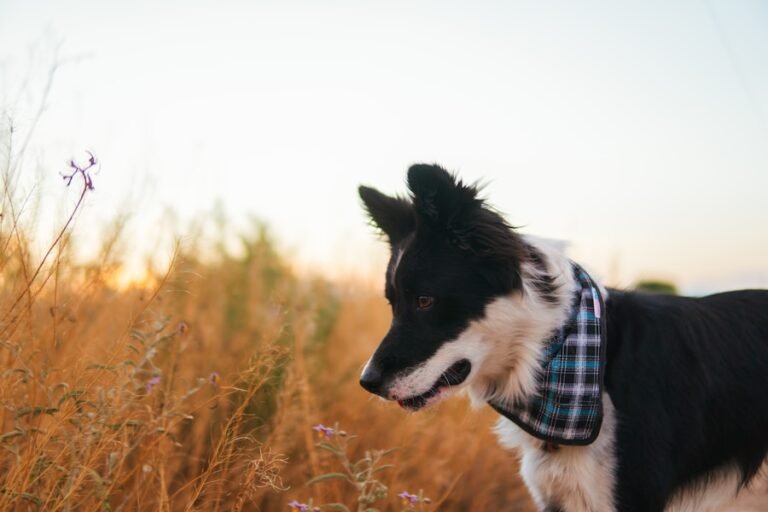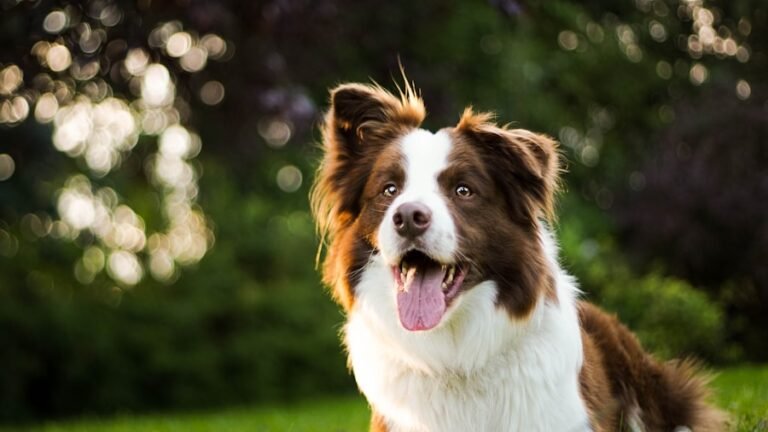From Small Pup to Big Dog: Understanding the Growth and Development of Border Collies
Border Collies are a breed of dog that have a rich history and a fascinating journey from puppies to adults. They were originally bred in the border region between England and Scotland for their herding abilities, and they have since become one of the most popular breeds in the world. Border Collies are known for their intelligence, agility, and loyalty, making them excellent working dogs and beloved family pets.
The growth and development stages of Border Collies are an important aspect of their journey from puppies to adults. Like all dogs, Border Collies go through various stages of growth and development, each with its own unique characteristics and milestones. Understanding these stages can help owners provide the best care and support for their Border Collies as they grow and mature.
The Genetics Behind Border Collie Growth: Understanding Inheritance and Breeding
The growth and development of Border Collies is influenced by genetics, as certain physical and behavioral traits are inherited from their parents. Responsible breeding practices are crucial in ensuring the health and well-being of Border Collies. Breeders should carefully select parent dogs that are free from genetic disorders and have desirable traits to pass on to their offspring.
Inheritance of physical traits in Border Collies can include coat color, size, and body structure. Behavioral traits such as intelligence, trainability, and herding instincts can also be inherited. It is important for breeders to understand these genetic factors and make informed decisions when breeding Border Collies.
The First Weeks of Life: The Critical Role of Nutrition and Care in Pup Development
The first weeks of a Border Collie’s life are crucial for their growth and development. During this time, proper nutrition and care are essential for ensuring the health and well-being of the puppies. Newborn pups rely on their mother’s milk for nourishment, as it provides them with the necessary nutrients and antibodies to support their immune system.
In addition to proper nutrition, newborn Border Collie pups require a warm and clean environment. They should be kept in a quiet and comfortable space, away from any potential hazards. Regular check-ups with a veterinarian are also important during this stage to monitor the health of the puppies and address any potential issues.
Milestones of Growth: Tracking the Physical and Cognitive Development of Border Collies
Border Collies go through various physical and cognitive milestones as they grow from puppies to adults. These milestones can vary slightly from dog to dog, but there are general guidelines that can help owners track their Border Collie’s development.
Physical milestones include the growth of teeth, the ability to walk and run, and the development of coordination and balance. Cognitive milestones include the ability to learn basic commands, problem-solving skills, and socialization with other dogs and humans.
It is important for owners to monitor these milestones and provide appropriate training and socialization opportunities to support their Border Collie’s healthy development. Positive reinforcement training methods can be highly effective in teaching Border Collies new skills and behaviors.
The Adolescent Years: Navigating the Challenges of Puberty and Socialization
The adolescent years can be a challenging time for Border Collies, as they go through puberty and experience hormonal changes. During this stage, Border Collies may exhibit behaviors such as increased independence, stubbornness, and a desire to assert dominance.
Socialization is particularly important during this stage, as it helps Border Collies develop appropriate behavior around other dogs and humans. It is important for owners to provide consistent training and positive reinforcement during this time to help their Border Collie navigate these challenges.
The Adult Stage: Understanding the Physical and Behavioral Characteristics of Mature Border Collies
As Border Collies reach adulthood, they develop distinct physical and behavioral characteristics. Physically, adult Border Collies have reached their full size and weight, typically weighing between 30 to 45 pounds. They have a medium-sized body with a strong and agile build.
Behaviorally, adult Border Collies are known for their intelligence, energy, and herding instincts. They require mental and physical stimulation to prevent boredom and destructive behaviors. Regular exercise, training, and interactive toys can help keep adult Border Collies happy and healthy.
Common Health Issues: Recognizing and Managing Conditions that Affect Border Collie Growth and Development
Like all dog breeds, Border Collies are prone to certain health issues that can affect their growth and development. It is important for owners to be aware of these conditions and take appropriate measures to prevent or manage them.
Some common health issues in Border Collies include hip dysplasia, epilepsy, progressive retinal atrophy (PRA), and allergies. Regular veterinary check-ups, a balanced diet, and regular exercise can help prevent or manage these conditions.
Training and Exercise: Promoting Healthy Development through Positive Reinforcement and Physical Activity
Training and exercise are crucial for promoting the healthy development of Border Collies. These intelligent dogs thrive on mental stimulation and physical activity. Positive reinforcement training methods, such as rewards-based training, are highly effective in teaching Border Collies new skills and behaviors.
Regular exercise is also important for Border Collies to burn off excess energy and prevent boredom. Daily walks, playtime, and interactive toys can help keep Border Collies physically and mentally stimulated.
Nutrition and Diet: Meeting the Unique Nutritional Needs of Border Collies at Different Stages of Life
Proper nutrition is essential for the growth and development of Border Collies at every stage of life. Puppies require a diet that is rich in nutrients to support their rapid growth. Adult Border Collies need a balanced diet that provides them with the necessary energy for their active lifestyle.
It is important for owners to choose high-quality dog food that is appropriate for their Border Collie’s age and activity level. Consulting with a veterinarian can help determine the best diet for a Border Collie at each stage of life.
Grooming and Maintenance: Keeping Your Border Collie Healthy and Happy through Proper Care
Grooming and maintenance are important aspects of keeping Border Collies healthy and happy. Their thick double coat requires regular brushing to prevent matting and to remove loose hair. Bathing should be done as needed, using a gentle dog shampoo.
In addition to grooming, regular maintenance tasks such as nail trimming, teeth brushing, and ear cleaning are important for maintaining the overall health of Border Collies. Regular veterinary check-ups are also crucial for monitoring their health and addressing any potential issues.
Tips for Raising a Happy and Healthy Border Collie from Pup to Adult
Raising a happy and healthy Border Collie requires attention to their unique needs at each stage of life. Providing proper nutrition, training, exercise, grooming, and veterinary care are essential for their growth and development.
Understanding the genetics behind Border Collie growth, tracking their physical and cognitive milestones, and addressing any potential health issues are important aspects of responsible ownership. With proper care and attention, Border Collies can thrive and bring joy to their owners throughout their journey from puppies to adults.









